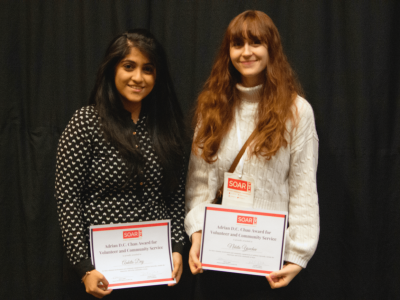By Elizabeth Kane
Scrolling through your social media feed, you’re bombarded with celebrity endorsements, influencer routines and so-called experts promoting the latest health and wellness products. From vitamin blends and third-party protein powders to teas promising serenity, it can be hard to escape these hidden digital marketing techniques.
The pervasive presence of product placements throughout our daily social media use highlights the profound impact that today’s influencer-driven culture has on shaping our health choices.
As these platforms connect the world in new ways, how does digital marketing by influencers impact our consumption of health products – from supplements to fitness classes to professional advice?
Carleton University marketing professor Dora Wang seeks to understand this phenomenon, the role of influencers and consumer mindfulness.

Wellness Influencer Marketing Driven by Gen Z and Alpha
Today, a large segment of the consumer market has grown up with social media as a reality of life.

Professor Dora Wang
“The younger population, segments like Generation Z and Alpha, are not paying attention to messaging from brands themselves — they are more likely to believe in social media influencers,” says Wang, citing feedback from her students.
“These influencers might be celebrities they like and who they have some commonalities with, or are active in areas they are interested in.”
While influencers may appear to earn the trust of their followers more easily than corporations, collaborating with them through product placements and recommendations is not without reputational risk.
“Brands need to be very careful when looking for social media influencers to act as their endorsers,” says Wang. “Influencers can become involved in controversies, which can create public relations crises.
“Therefore, the fit between the brand and influencer is very important.”

Distinguishing Expertise from Influence with Mindfulness
Wang was first drawn to the dietary supplement market, a field stocked with a wide array of products, from traditional vitamins to sleep aids. These products are easily accessible – available in grocery stores, as well as specialty shops.
While many health professionals have been vocal about the lack of effectiveness of many dietary supplements, Wang wanted to explore how social media can influence consumers who choose these products.
“Despite doctors suggesting that people don’t need them, buyers are still committed to supplement consumption,” says Wang. “A large part of this motivation and influence can come from social media.”
Social media influencers can have a high level of trust with their viewers. Some content creators leverage their aspirational lifestyle or expertise when highlighting dietary supplements in their posts.
However, there are concerns about social media’s influence on consumers including the ethics of providing consumers product reviews.
Wang noted that the review acts as an advertisement for the product. “We don’t always know if there is a collaboration or agreement between the influencer and the brand being reviewed.”
To help consumers resist the lure of social media marketing, Wang’s research has found that consumers who practiced mindfulness were able to make better choices regarding supplement consumption by resisting external pressures and maintaining their agency when making health decisions.
A mindful consumer maintains an awareness of both internal and external stimuli when making purchasing decisions. This allows the buyer to resist being overly swayed by external forces such as pressures from social media.
Individuals can build their mindfulness practice through immersive and attentive daily practices, like yoga, reading and dancing.
“There is a positive relationship between a consumer’s level of mindfulness and informed rational consumer decisions regarding dietary supplement consumption,” says Wang.

Health at Home Through Fitness Streaming and Consulting
Looking ahead, Wang plans to explore other avenues of health consumption through social media.
One of those areas is the impact of livestreaming fitness classes through apps, opening new avenues of accessibility by removing the barrier of having to physically travel to a gym. The classes can provide the feeling of participating in a group activity through live commenting or leaderboards.
“These fitness platforms can be beneficial to people who don’t have access to a fitness center, or who might have mobility concerns,” says Wang. “We can increase fitness accessibility using these platforms, which is good for public health.”
Wang seeks to investigate how this new sphere of health consumption can impact users’ choices about physical activity and the role mindfulness can play.
“I’ll be looking at mindfulness as a mechanism to mediate influence from social media and the user’s intention to be involved in fitness, maintaining a healthy lifestyle and sustainable consumption.”
Wang is also partnering with a local health consultant to determine how social media can be leveraged to connect with older Canadians and their caregivers to provide health care advisory services and social and emotional support.
“We are determining the best way to connect with clients by improving practitioners’ social media engagement with these demographics,” says Wang, noting that Facebook is especially popular with this group. “By connecting via social media, practitioners can find new ways to provide advisory and client support services.”
Monday, April 29, 2024 in Asian Heritage Month, Sprott School of Business
Share: Twitter, Facebook



